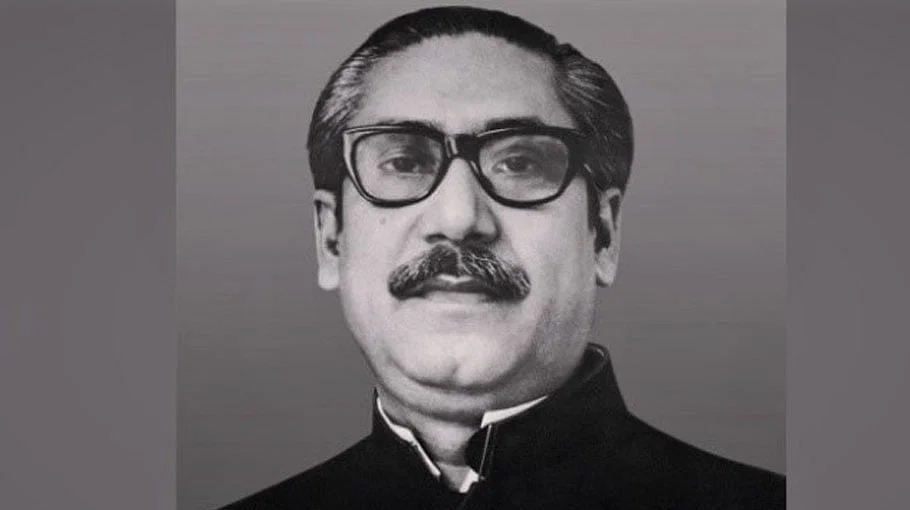Recalling Bangabandhu on his birth anniversary

Bangabandhu Sheikh Mujibur Rahman was released from his internment in Pakistan in the first week of January 1972 and eventually returned to Dhaka, the capital of independent Bangladesh amidst a rapturous welcome on 10th January, 1972. The return of Father of the Nation completed our struggle for independence.
He believed in nationalism, democracy, secularism and socialism. He felt that they were required for the good of the common man. Bangabandhu was also a firm believer in the rich cultural and literary heritage of Bangladesh and for him that was the spring-board of the Bangalee ethos, its tradition and its nationalism. That instilled in him the pride of being a Bangalee living in Shonar Bangla.
Dedicated and committed to the cause of Bangladesh, he encapsulated his vision for his new country at Palam Airport, New Delhi on 10 January, 1972. He described his journey to a free Bangladesh as ‘a journey from darkness to light, from captivity to freedom, from desolation to hope’.
Bangabandhu after his return to Dhaka, openly thanked India for its past assistance and then requested that country to withdraw all its troops from Bangladesh. This was complied with immediately and belied claims by the then Pakistani leadership that Bangladesh was going to remain as an Indian colony.
Bangabandhu’s magnanimity and belief in the people of Bangladesh was reflected in his optimism. It was also this spirit that would inspire him to face up to the many difficulties that he would have to overcome in the coming months- arranging relief and rehabilitation for the more than ten million Bangladeshis who had sought refuge in India during the war in 1971, restoring economic activity, infrastructural connectivity, agricultural process, educational institutional facilities and healthcare.
A statesman and gifted orator, Bangabandhu in his speech on 10th January, 1972 at Suhrawardy Uddyan was masterly in his advice for the victorious people of Bangladesh. At this first opportunity, he warned that none should ‘raise’ their ‘hands to strike against non-Bangalees’. At the same time, he displayed his concern for the safety of the ‘four hundred thousand Bangalees stranded in Pakistan’. There was a nuanced connotation in his approach to the problem. This eventually assisted in the safe repatriation to Bangladesh of the unfortunate Bangalees who were stranded in different internment camps in Pakistan.
While re-affirming that he harbored no ‘ill-will’ for the Pakistanis, he also pointed out that ‘those who have unjustly killed our people and assisted in this crime will surely be tried’. Later, on 17 April, 1973, after the completion of investigations into the crimes committed by the Pakistan occupation forces and their auxiliaries, it was decided to try 195 persons for serious crimes, which included genocide, war crimes, breach of Article 3 of the Geneva Conventions, murder, rape and arson. Unfortunately, his death also resulted in the setting aside of the entire judicial process. Fortunately, under the leadership of Prime Minister Sheikh Hasina the trial process has been activated and is being completed.
Subsequently, Bangabandhu did not hesitate to exhibit his and Bangladesh’s closeness and support for Islam, Arab countries and the OIC during the 1973 war between Egypt and Israel. His personal initiative resulted in the dispatch of a Bangladeshi Army Medical team and cartons of Bangladeshi tea for Egypt and Syria. This was greatly appreciated by members of the OIC and resulted in Bangladesh being invited to be a member of the OIC during its Summit meeting in Lahore, Pakistan in February, 1974.
Bangabandhu believed strongly in the sovereign equality of all nations and laid particular stress on the promotion of close cooperation with India in the fields of development and trade “on the basis of equality and mutual benefit”. It was this approach that led him eventually to persuade India to agree to the establishment of a Joint Rivers Commission. In the Joint Declaration of the Prime Ministers of Bangladesh and India on 19th March 1972 at Dhaka, there was also a reference to examining the feasibility of linking the power grids of Bangladesh with the adjoining areas of India. That is being achieved now.
Consistent with this principle of brotherly relations, Bangabandhu signed the historic “Land Boundary Agreement (LBA)” with the then Indian Premier Indira Gandhi on May 16 in 1974 to settle the land boundary dispute between the neighbors. Bangladesh quickly ratified the agreement that year but India failed to do so. Indian Parliament however took 41 years to subsequently unanimously pass the LBA on May 7, 2015- thanks to the persuasion of Sheikh Hasina.
Bangabandhu’s persistent interest in foreign policy eventually led to Bangladesh being recognized as an independent state by nearly 120 countries within three and half years. In addition, Bangladesh also secured the membership of the UN (where he addressed the UN General Assembly in 1974 in Bengali) , the Commonwealth, the Organization of Islamic Cooperation (OIC), the Non-Aligned Movement (NAM), the International Monetary Fund (IMF), the World Bank, the International Telecommunication Union (ITU), the World Health Organization (WHO), the International Labour Organization (ILO) and some other international bodies.
Every year when we observe the anniversary of the birth of Bangabandhu, we are reminded that Bangabandhu was correct when he stated- : “Only a peaceful environment can enable us to enjoy the fruits of the hard-earned national independence and gather all our strength and resources to fight poverty, hunger, disease, illiteracy and unemployment.”
(Muhammad Zamir, a former Ambassador, is an analyst specialized in foreign affairs, right to information and good governance, can be reached at <muhammadzamir0@gmail.com>) For BDP- 13.3.24




